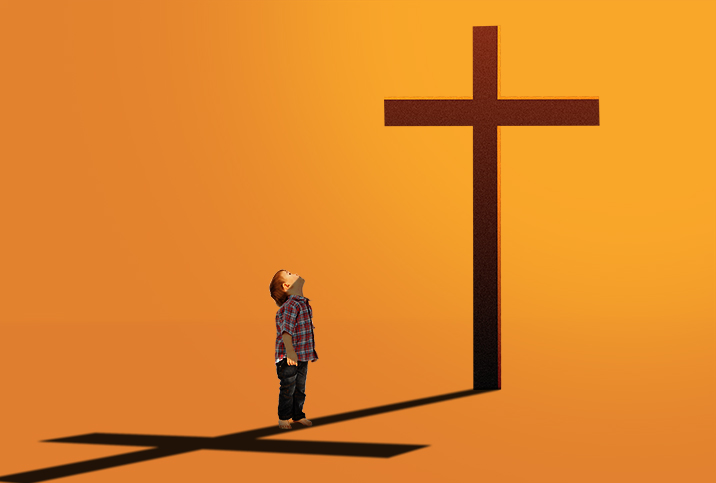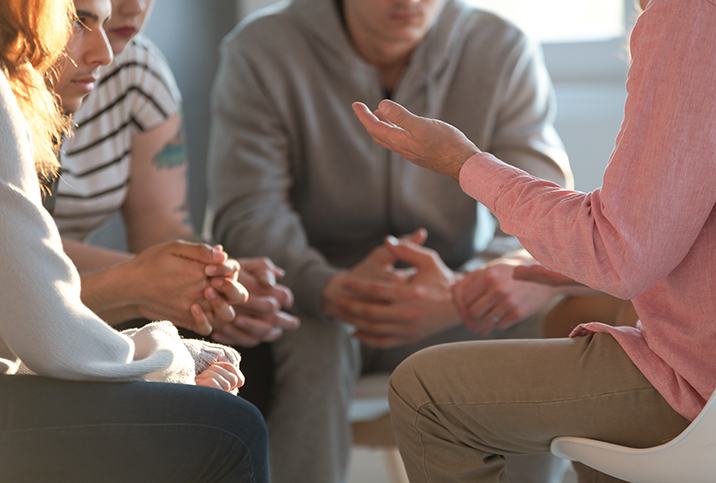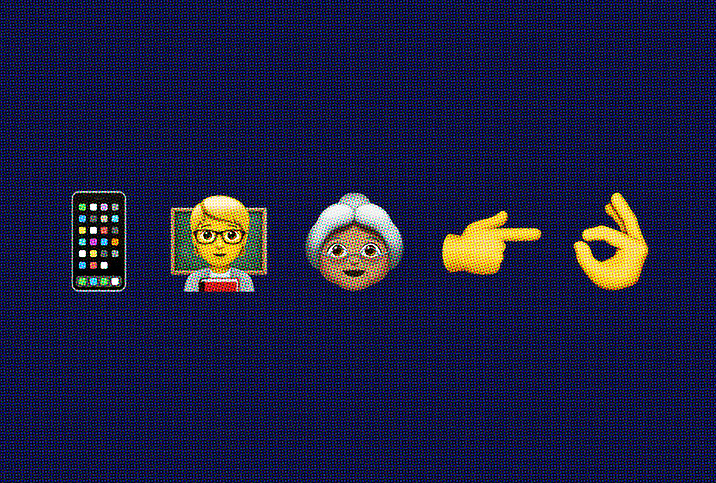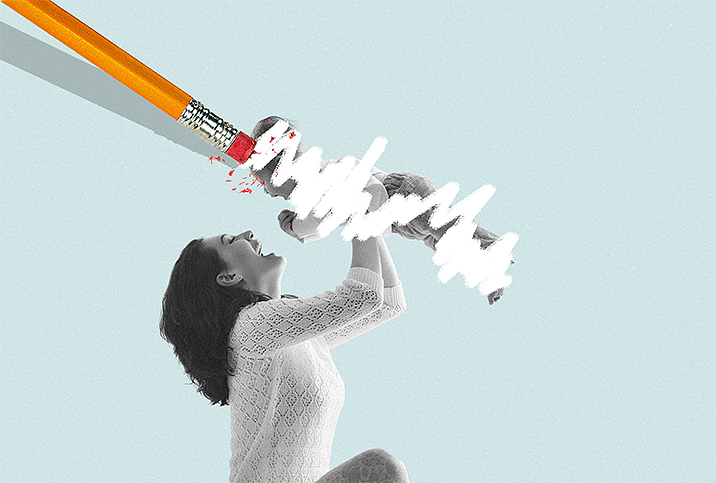What Growing Up in a Conservative Home Did to My Gender Identity

At age 4, I knew I wasn't a girl.
Granted, some part of me knew I wasn't a boy, either. There weren't words for people like me. Well, that's not completely true. There weren't words that explained what I was feeling. There were plenty of words for people like me.
Freak. Weirdo. Attention-seeker. Idiot. It's just a phase.
These words became more weighted as I grew older and got more involved in my local church. And after I left my childhood home, it would be five more years before I accepted my gender identity enough to start transitioning.
I called hell home
I grew up in a devout, conservative Utah suburb nestled against the Rocky Mountains. In the past decade, thousands of people have moved here to make their home in a picture-perfect landscape—ironic, as my childhood was anything but perfect.
Everyone in my neighborhood and many people surrounding it went to the local Mormon church each Sunday. Because everyone around me was Mormon, it felt like church never ended. It wasn't something just for Sundays—it was interwoven into every aspect of my life. This meant I could never escape the message I was given from a young age: God created us in His image, and if I did anything to defile that image, I would go straight to Hell.
For a while, that didn't bother me. But when I hit puberty, my body physically became the enemy, as the ever-present Mormon influence reminded me over and over how it was my divine calling to become the most perfect female, to save myself, so one day I'd become a beautiful mother to more of God's children.
To this day, I have never had a speck of maternal instinct. The concept of being a mother was so foreign to me. That was something girls did and I wasn't a girl.
The more I fought against this idealism, the more people insisted that was who God had made me to be. And if I fought against what God created, then there was the ever-present threat of Hell.
But I was already there.
What's sad is my experience isn't uncommon for transgender individuals.
Archer Vogel, he/him, a trans man from North Carolina, experienced similar circumstances. Vogel grew up in Mineral Springs—a town with a post office, a gas station and thousands of cornrows.
"I never tried to completely come out to my parents as trans—I came out as gay," Vogel said. "That went poorly. My dad signed me up for electroshock therapy, and eventually didn't go through with it only because it was prohibitively expensive."
The blurred line between conservatism and religion
Starting at a very young age, the Mormon church teaches gender roles as part of God's plan. Girls are taught that they will grow up to be mothers and serve their husbands. Boys are taught all sorts of neat skills and encouraged to pursue their interests.
It's almost as if someone took a snapshot of the 1950s, made it a religion, and put a ton of restrictive standards in place that you have to adhere to if you wanted to get into Heaven.
While the church begins teaching members about divinely appointed gender roles in childhood, it doesn't reach its peak until kids become teenagers, right as they're going through puberty. For people like Vogel, and me, this can have devastating consequences.
"I didn't have a problem with the gender imposed on me until puberty," Vogel said. "I was immediately sexualized and treated like contraband."
As a teenager, I went through a youth program, which leaned heavily on the religious themes taught when I was younger to further emphasize who God made me to be. Only the sinful went against what God expected of them—if we didn't accept our roles as compliant mothers and wives to our future husbands, we needed to go to God and repent.
I knew long before religion began telling me what I had to be that I would never become a mother because I wasn't female. It wasn't a matter of wanting or not wanting, which should be enough of a reason for someone not to follow through. It was a matter of incompatibility. But for more than a decade, I had no other frame of reference.
Instead of realizing my gender identity didn't match being socialized female, I thought something was wrong with me. I was constantly bullied and had a hard time making friends because I was "the girl who only played with boys." Eventually, the suburban moms noticed their sons playing with me and told them they couldn't any more. Boys and men, after all, were supposed to fulfill a higher calling, one I stood in the way of.
The damage done by my father
Men stand to gain a lot from the structure of the Mormon church and are given a divinely appointed gift called The Priesthood.
My father used The Priesthood to tell me how I needed to change my ways and prepare to become a mother. Every blessing, every laying on of hands was a constant reminder of my failures, my weaknesses and my shame.
A few years into puberty, I finally gave in and stopped resisting the pressure I was getting from all sides to become the perfect girl. I leaned hard into presenting myself so differently than what I knew myself to be. Suddenly, everyone was happy with me—proud of me—but the internal struggle didn't subside.
When I was 15, I tried to take my own life to repent for so deeply hating my supposedly God-given role in life. Luckily, that attempt was unsuccessful, but from then on, I knew it would always be dangerous to live my true gender identity.
For trans people who grew up this way, it's a familiar feeling.
"I knew at all times that it was unsafe to be who I was, to be fully honest with the people I lived with," Vogel said. "I had friends at school who accepted me...but at home, it stayed in my room or online."
Transitioning doesn't fix everything, but it goes a long way
Because of the immense amount of shame I experienced while trying to live my gender identity growing up, I didn't begin transitioning until I was 23. Even now, six years into my transition, I still experience shame toward being out and living as myself, not to mention the prejudice I still face.
"It's not as if transitioning cured me of being mistreated by other people, but being perceived as female felt like acid poured on my body," Vogel said.
Even so, my life is so much better now. I can say with full confidence that the people around me accept me and love me as my correct gender identity, and not for pretending to be someone I'm not.


















